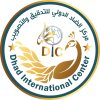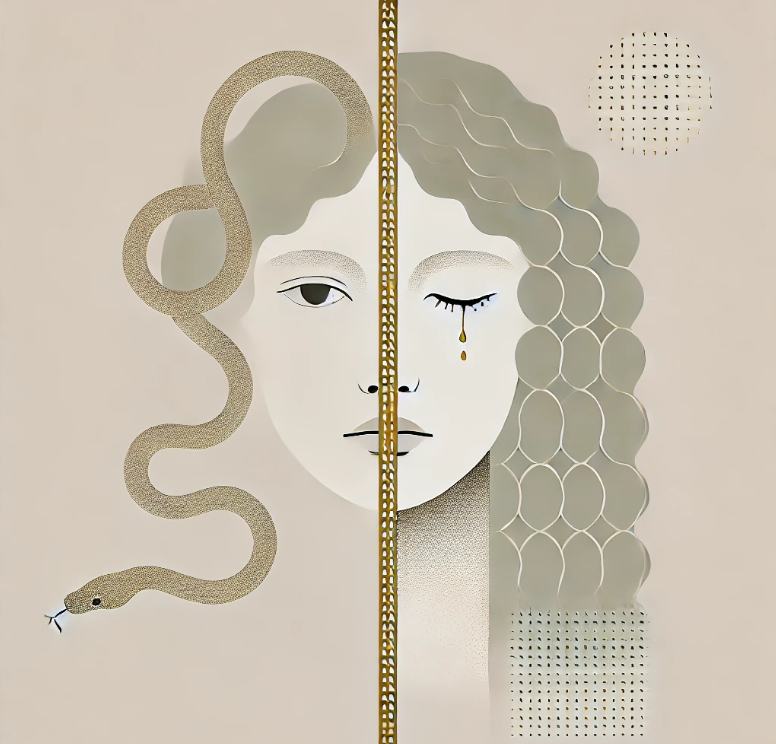Medusa’s Tears: The Thin Perforated Line between Western and Eastern Feminism
In a world which claims to be increasingly feminist, female oppression and subjugation is still rampant in many—if not all—regions of the world. Patriarchal jurisprudence still exerts its monopoly over women’s bodies all the while upholding its values of male dominance and macho presence. Given such a masculine and hostile political climate, women struggle not only to emancipate themselves from the patriarchal monopoly known as the male gaze but also to rewrite the feminine narrative using their own outlook on how it feels to be a woman.
So far, feminist literature, through the writings of authors as early as 19th century Virginia Woolf and as late as 21st century Nawal El Saadawi, has achieved milestones in destigmatizing conversations centered around women’s oppression and has created safe spaces which allow women to voice their trembling, muffled, rusty yet mighty voices. Still a pressing question surfaces amidst the fourth wave of feminism: might centering intersectionality risk the collateral effect of decentering women’s trauma and thus stalling their healing process?
The question poses itself: how is feminist discourse missing the mark on the invaluable narratives of marginalized women thus perpetuating the very systems it seeks to abolish? By ‘marginalized’ women here one does not only point out to the woman who is locked behind bars, in some Eastern desert, married to her cousin and honor killed had her hymen not bled at the first sexual encounter. ‘Marginalized woman’ here refers to the subdued woman inside every female identity, the woman who desires to speak but is being silenced by its very host. This woman lived no less in Marilyn Monroe than she existed in Loujain Alhathloul, a Saudi women’s rights activist who got politically imprisoned by the state for her activism.
Imploring and poking the marginalized woman in every being with a mental stick is by no means an attempt to criticize feminist literature, which has done-and keeps doing-so much for women all around the globe. The gap alluded to in feminist literature is not one which mistreats or misrepresents woman rather than one which only recounts the narrative of a woman as an object debated rather than a subject dominating the debate. Feminist literature writes too much about what happens to a woman-which is invaluable and integral to her liberation-but very little about a woman unfiltered.
In other words, feminist literature has centered dismantling the injustices perpetuated towards women, and by doing so it had to inevitably marginalize women themselves: their desires, their ambitions and so on. It makes sense that to write woman we must emancipate women first, yet self-expression through writing remains one invaluable form of emancipation. This gap not only displaces but also decenters women in a feminist framework. This paper will be extrapolating research from Cixous, Al Saadawi, Woolf, Freidan and many more feminists to clarify the stance and buttress the claim that women need to write themselves, not ‘about’ themselves.
A brief historical account on the oppression of women is worthy of attention as it brings to the fore the incentives behind centering the marginalization of women as a topic in the feminist literary-political climate, and Nawal El Saadawi traces this pertinently in her The Hidden Face of Eve. Prior to investigating the ways in which female oppression is showcased, it is imperative to point out that the book was originally titled ‘The Naked Face of Eve’ later euphemized into the more acceptable antonym ‘hidden’ (Amireh, 2000). Though contradictory, both the adjectives ‘hidden’ and ‘naked’ serve the same purpose of exposure, for a hidden face is written to be revealed much like a naked face is already laid out for the seeing. Yet for patriarchal reasons, presenting a body of work behind a veil to be lifted is much more acceptable than staging it readily unclad, veneer-gone, veil-lifted-despite the latter being the primordial truth.
Bibliography
Amireh, A., 2000. Framing Nawal El Saadawi: Arab Feminism in a Transnational World. Univeristy of Chicago Press.
Saadawi, N. E., 1977. The Hidden Face of Eve. s.l.:s.n.
نبذة مختصرة: أ. آية المهتدي
مدرسة علم النفس واللغة الإنجليزية (المنهج الأمريكي) – AMSI | المواكب الغرهود (دبي، الإمارات)
قامت بتصميم وتقديم المواد التعليمية لطلاب المرحلة المتوسطة والثانوية (الصفوف 6–12).
أجرت تقييمات تكوينية وختامية لمراقبة تقدم الطلاب.
طبقت استراتيجيات التنوع والشمول بتكييف الدروس للطلاب ذوي الاحتياجات الخاصة.
محاضرة جزئية – جامعة البلمند (الكورة، لبنان؛ سبتمبر 2022 – يونيو 2023)
قدمت محاضرات اللغة الإنكليزية و فنون التواصل الاجتماعي.
تعاونت مع الزملاء في صياغة ومراجعة المجلات الأكاديمية.
قائدة فريق المعلمات – شركة انكليز
أشرفت على تقييمات الجودة للمعلمات على جميع المستويات
أعدت وقدمت تقارير ملاحظات أسبوعية وتقارير تقدم شهرية
![]()

